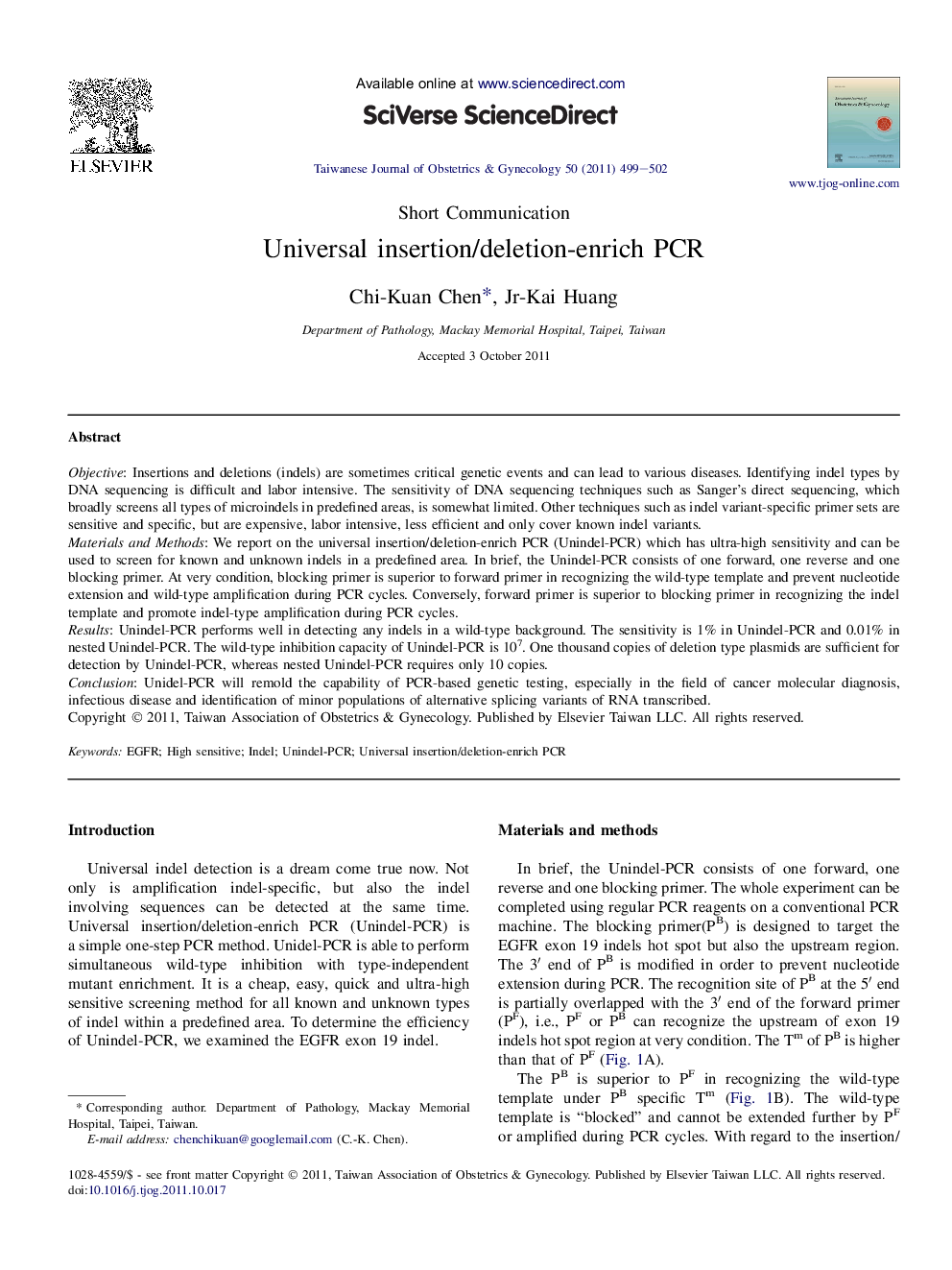| Article ID | Journal | Published Year | Pages | File Type |
|---|---|---|---|---|
| 3975546 | Taiwanese Journal of Obstetrics and Gynecology | 2011 | 4 Pages |
ObjectiveInsertions and deletions (indels) are sometimes critical genetic events and can lead to various diseases. Identifying indel types by DNA sequencing is difficult and labor intensive. The sensitivity of DNA sequencing techniques such as Sanger’s direct sequencing, which broadly screens all types of microindels in predefined areas, is somewhat limited. Other techniques such as indel variant-specific primer sets are sensitive and specific, but are expensive, labor intensive, less efficient and only cover known indel variants.Materials and MethodsWe report on the universal insertion/deletion-enrich PCR (Unindel-PCR) which has ultra-high sensitivity and can be used to screen for known and unknown indels in a predefined area. In brief, the Unindel-PCR consists of one forward, one reverse and one blocking primer. At very condition, blocking primer is superior to forward primer in recognizing the wild-type template and prevent nucleotide extension and wild-type amplification during PCR cycles. Conversely, forward primer is superior to blocking primer in recognizing the indel template and promote indel-type amplification during PCR cycles.ResultsUnindel-PCR performs well in detecting any indels in a wild-type background. The sensitivity is 1% in Unindel-PCR and 0.01% in nested Unindel-PCR. The wild-type inhibition capacity of Unindel-PCR is 107. One thousand copies of deletion type plasmids are sufficient for detection by Unindel-PCR, whereas nested Unindel-PCR requires only 10 copies.ConclusionUnidel-PCR will remold the capability of PCR-based genetic testing, especially in the field of cancer molecular diagnosis, infectious disease and identification of minor populations of alternative splicing variants of RNA transcribed.
